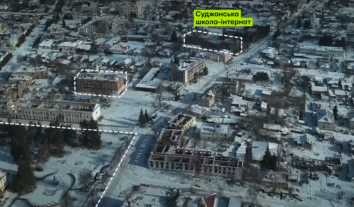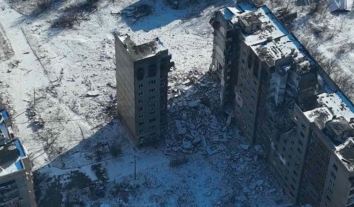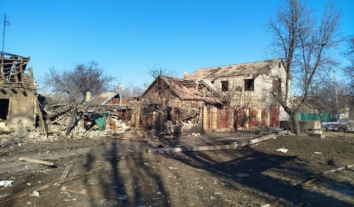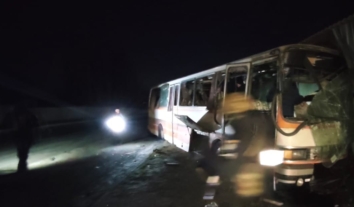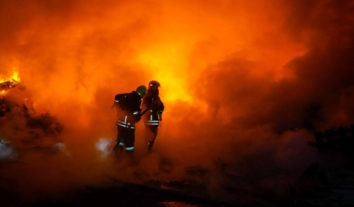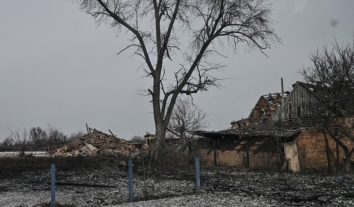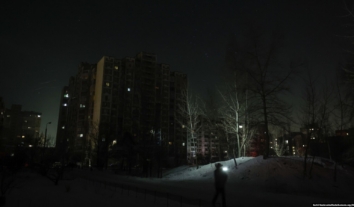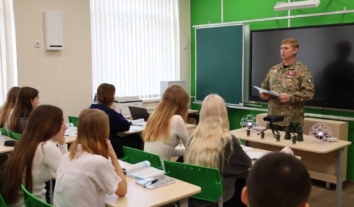Orphans in the Occupied Territories are in Danger
Normal
0
false
false
false
RU
X-NONE
X-NONE
/* Style Definitions */
table.MsoNormalTable
{mso-style-name:”Обычная таблица”;
mso-tstyle-rowband-size:0;
mso-tstyle-colband-size:0;
mso-style-noshow:yes;
mso-style-priority:99;
mso-style-qformat:yes;
mso-style-parent:””;
mso-padding-alt:0cm 5.4pt 0cm 5.4pt;
mso-para-margin-top:0cm;
mso-para-margin-right:0cm;
mso-para-margin-bottom:10.0pt;
mso-para-margin-left:0cm;
line-height:115%;
mso-pagination:widow-orphan;
font-size:11.0pt;
font-family:”Calibri”,”sans-serif”;
mso-ascii-font-family:Calibri;
mso-ascii-theme-font:minor-latin;
mso-fareast-font-family:”Times New Roman”;
mso-fareast-theme-font:minor-fareast;
mso-hansi-font-family:Calibri;
mso-hansi-theme-font:minor-latin;}
Due to the conflict in Eastern Ukraine, children have found themselves in danger. In institutions for orphans in the occupied territories, there are no permanent telephone connections, there are problems with medicines, and locals must help them obtain foods.
The official website of the Ukrainian Parliament Commissioner for Human Rights reports that this was stated by Ombudsman Valeriya Lutkovska during a meeting of the Commission “Ukraine-NATO” at the NATO Committee on Partnership and Collective Security, which took place in Brussels.
Lutkovska noted in her report “Protecting children’s rights in the armed conflict in the east of Ukraine” that, in the early summer of 2014, over 40 institutions for orphans, children deprived of parental care, and people with disabilities were operating in “hot spots.” Some of those institutions are still working in the occupied territories.
These institutions do not have permanent telephone or electronic connections and there are problems with the supply of medicines and equipment. Institutions receive products through humanitarian aid and from locals.
“There is no information on the number of orphans and children deprived of parental care who are under guardianship or trusteeship. According to the statistics from the beginning of 2014, 7292 children were under guardianship in the Donetsk region and there were 3233 in the Luhansk region. As a result of lengthy negotiations with the leaders of the so-called ‘DNR,’ which were carried out with the involvement of the public, as well as through the personal intervention of the Ukrainian Parliament Commissioner for Human Rights, children from the Amvrosiivka, Marinka, and Donetsk boarding schools, which had been under the care of representatives of the so-called ‘DNR,’ managed to be removed from the ATO to safer regions of Ukraine,” said Lutkovska.
33 children under the age of three from the Kramatorsk orphanage “Antoshka” were also rescued, along with more than 80 children from Donetsk city and regional children’s homes, 52 children from the Makiivka orphanage, and 19 children from the Torez orphanage.
Lutkovska reported that information about the illegal movement of orphans and children deprived of parental care by members of illegal armed groups was given to the Government Agent for the European Court of Human Rights by the Ukrainian Parliament Commissioner for Human Rights. This was done in connection with Ukraine’s application to the European Court of Human Rights on the case “Ukraine v. Russia.”
During the monitoring visit by employees of the Secretariat of the Commissioner together with representatives of public organizations of the Ivano-Frankivsk region, which was done within the framework of the National Preventive Mechanism, it was discovered that no resources from the regional budget were allocated for food or medicine for Sniatin and Deliatyn neuropsychiatric boarding houses.

